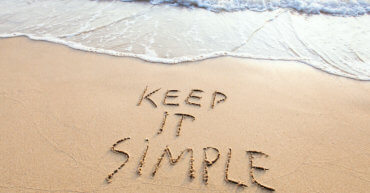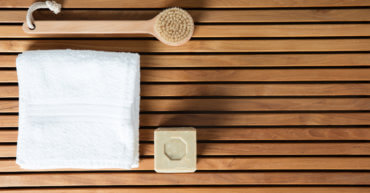July 21, 2020
A Different Kind of Independence

By Julie Gregory, Chief Health Liaison for Apollo Health
Hi Friends-
While July is typically the month that we celebrate our nation’s independence from Great Britain, I invite you to consider your own independence instead. Think about all of the things that are holding you back from successfully practicing the protocol. Is it social pressure, family commitments, work obligations, or maybe that constant negative little voice in your head leading you to think you’re not worth it? I get it. I’ve experienced all of these and more. When I finally declared my independence and decided to make myself a priority, I did it in a big way. I moved across the country, away from the bulk of my obligations, to an entirely new geographic location to reinvent a world where I was the priority. You needn’t make that dramatic of a move, but the shift that occurs in your mind may be equally monumental.
So many of us spend the bulk of our energy taking care of others. We do so in our interpersonal relationships when caring for children or even our elderly parents and relatives. When you layer these responsibilities on top of the time and energy spent working to support ourselves and our families, it’s easy to feel like there’s just not enough time for self-care. Instead, you feel as though you’re simply surviving- trying to get through the day. I get it. I’ve been there. Silence that inner monologue of self-doubt and CHOOSE to make yourself a priority, replacing those negative thoughts with positive action. We now know that it takes at least a decade (or more) for the pathology that leads to cognitive decline to manifest as symptoms. The sooner you begin a prevention or reversal program, the better your chance of success. See the tips below to help you overcome whatever is holding you back from declaring your independence and freedom to care for yourself.
Love Yourself
This is really where it all begins. At a deep core level, many of us don’t feel worthy of self-love or self-care. These feelings of inadequacy often have roots in early childhood experiences. Very few of us were lucky enough to enjoy perfect childhoods, and subsequently, we carry around some degree of scarring that still affects us today. In fact, researchers have put together a questionnaire called Adverse Childhood Experiences (ACE) to quantify the amount of trauma we experienced before the age of eighteen. The evidence is clear; those with higher scores tend to suffer from chronic health issues that can predispose us to develop cognitive decline. The good news, however, is that your ACE score is simply a risk factor. You can intervene and stop allowing events from your past to control you today.
The first step is simply awareness. As you go about your day, pay close attention to your thoughts. Do you often find yourself ruminating over stressful events from your past or worrying about events that might come up in the future? When this happens, try to catch yourself. Gently and non-judgmentally, bring your thoughts to the present. Become fully aware of the world around you and what’s happening in that moment. That split second of awareness is where the magic begins, where you begin to become consciously aware of your thoughts. This is a way of creating space for yourself, an opportunity to think, to breathe, and to create a space between yourself and your reactions. This is the heart of a practice called mindfulness, popularized by Jon Kabat-Zin, Ph.D., the creator of Mindfulness-Based Stress Reduction. To learn more, treat yourself to this transformative talk by Dr. Kabat-Zin, describing how to cultivate a mindfulness mindset.
Set Boundaries
We all understand physical boundaries, like property lines, but many are confused when setting psychological boundaries with other people. It all boils down to separating your feelings from those around you. It can get complicated in intimate relationships (between partners or parent and child), but it can also get sticky with friends and co-workers. Boundaries are basic guidelines that establish how you would like to be treated. It takes practice to set healthy boundaries, which requires tuning in to your feelings when interacting with others. Am I feeling out of control or taken advantage of, or do I feel valued and prioritized? If you feel more of the latter, you’ve likely begun to understand that the little negative voice in your head doesn’t define you. You are so much more than you ever imagined yourself to be, and so is the person with whom you’re interacting. This level of understanding makes it easier to ask for what you need in a kind and loving way that also honors the other person, allowing you to establish boundaries that enable you to care for yourself.
Prepare for Success
Do your best to create an emotional, social, and physical environment where you can successfully practice the protocol. When I decided to turn my life around and prioritize self-care, I was blessed to have my husband’s emotional support. He knew I was facing my own mortality, and he wholeheartedly backed my choices to heal even though it meant a major disruption to our current way of life. Better yet, he has chosen to adopt many aspects of the protocol as well. This makes eating together and many other aspects of cohabiting much easier. Socially, we choose to surround ourselves with like-minded friends who are also active and health-focused. We tend to meet friends for morning coffee, hikes, and kayak excursions rather than late-night dinners, dessert parties, and drinks. It doesn’t mean that we don’t go out to dinner with friends; we just go earlier and carefully choose restaurants (like farm-to-table) that provide food we can eat. When attending family gatherings, we don’t rely on our hosts to cater to us. Instead, we bring several dishes of our food to share.
Physically, our home environment is conducive to practicing the protocol. I’ll share a few examples. Our kitchen is carefully stocked with KetoFLEX 12/3-friendly foods. I lay out my exercise clothes the night before, so I literally have to trip over my sneakers on my way to get coffee. We have room darkening shades and separate sleep quarters when our schedules aren’t in sync so that we can prioritize quality sleep. My office provides a quiet space to meditate with a hotel-like “do not disturb” sign, where I also store my portable sauna, rebounder, and weights for strength training. We keep our supplements stocked and organized so that they become a seamless part of our routine, etc. You get the picture. Because we prioritize our health, we’ve created an environment that promotes a healthy lifestyle.
When you break away from a lifestyle that no longer serves you and create a new one, the feeling of independence can be powerful. It’s helpful to share this life-changing journey with others who are on a similar path. Apollo Health subscribers are welcome to participate in our discussion forums for participants/practitioners, where you can share your successes and frustrations and seek clarification about all aspects of the protocol. We have a staff of trained health coaches moderating the discussions, and Dr. Bredesen frequently pops in to answer questions personally. Take this opportunity to declare your independence from whatever is holding you back from reclaiming your health. You are worth it.
Be well-
Julie




